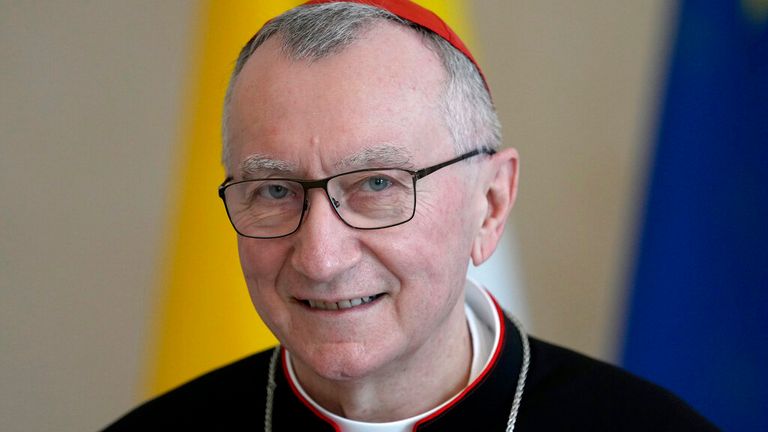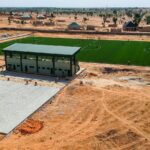Vatican Secretary of State, Cardinal Pietro Parolin, has challenged the Christian genocide narrative in Nigeria, claiming that the insecurity in the country is primarily a complex “social conflict” rather than a purely religious war.
Speaking to reporters on the sidelines of the presentation of a report on religious freedom, compiled by Aid to the Church in Need (ACN), Cardinal Parolin, the Holy See’s second-highest official, cautioned against labeling all attacks as religious persecution.
He claimed that local church sources indicate much of the violence stems from socio-economic factors.
According to him, some of the conflicts are caused by the tension between herders and farmers over dwindling resources.
While dismissing the Christian genocide narrative, Cardinal Parolin also explained that extremist groups, such as Boko Haram, often employ indiscriminate violence against anyone perceived as an opponent, including Muslims who refuse to conform to their radical ideology.
He said the situation was “not a religious conflict”.
“We should also recognise that many Muslims in Nigeria are themselves victims of this same intolerance,” he said.
“These are extremist groups that make no distinctions in pursuing their goals. They use violence against anyone they see as an opponent.”
Pan-Atlantic Kompass reports that this is another twist in the Christian genocide narrative that has been making headlines over the past weeks.
The Vatican’s assessment lands amid escalating pressure from U.S. lawmakers and international advocacy groups demanding harsher action against the Nigerian government.
Prominent U.S. politicians, including Senator Ted Cruz and Congressman Riley Moore, have repeatedly used the term “Christian mass murder” or “genocide” to describe the systematic targeting of churches, priests, and Christian communities in Nigeria’s Middle Belt and northern regions.
In official statements, these lawmakers have leveraged statistics provided by NGOs to argue that the number of Christians killed for their faith is disproportionately high, claiming that the violence meets the legal threshold for genocide under the UN Genocide Convention.
These U.S. Congressional members have consistently urged the executive branch to redesignate Nigeria as a Country of Particular Concern (CPC) for systematic religious freedom violations, a designation that was controversially lifted by the U.S. State Department in 2021.
However, the Nigerian government has dismissed the Christian genocide narrative.
Nigerian officials, including the Minister of Information and the Senate, have counter-argued that while the nation faces severe security challenges, the conflict is not an intentional, systematic attempt by the government or any major group to wipe out Christianity.
They point out that Muslim communities are also under constant siege from various criminal elements, including bandits, kidnappers, and extremist groups. The government claimed that framing the issue as purely religious overlooks the complexities of ethnic rivalries, banditry, and resource conflicts.
The Nigerian government has also constituted a delegation to travel to the United States to engage with the administration of President Donald Trump over the Christian genocide narrative.
Pan-Atlantic Kompass had reported that the aim of the delegation is to prove that the Nigerian government is not encouraging religious war as claimed by some U.S. lawmakers.
It was also gathered that the Nigerian delegation would be armed with proof and data that there is no Christian genocide in the country.





